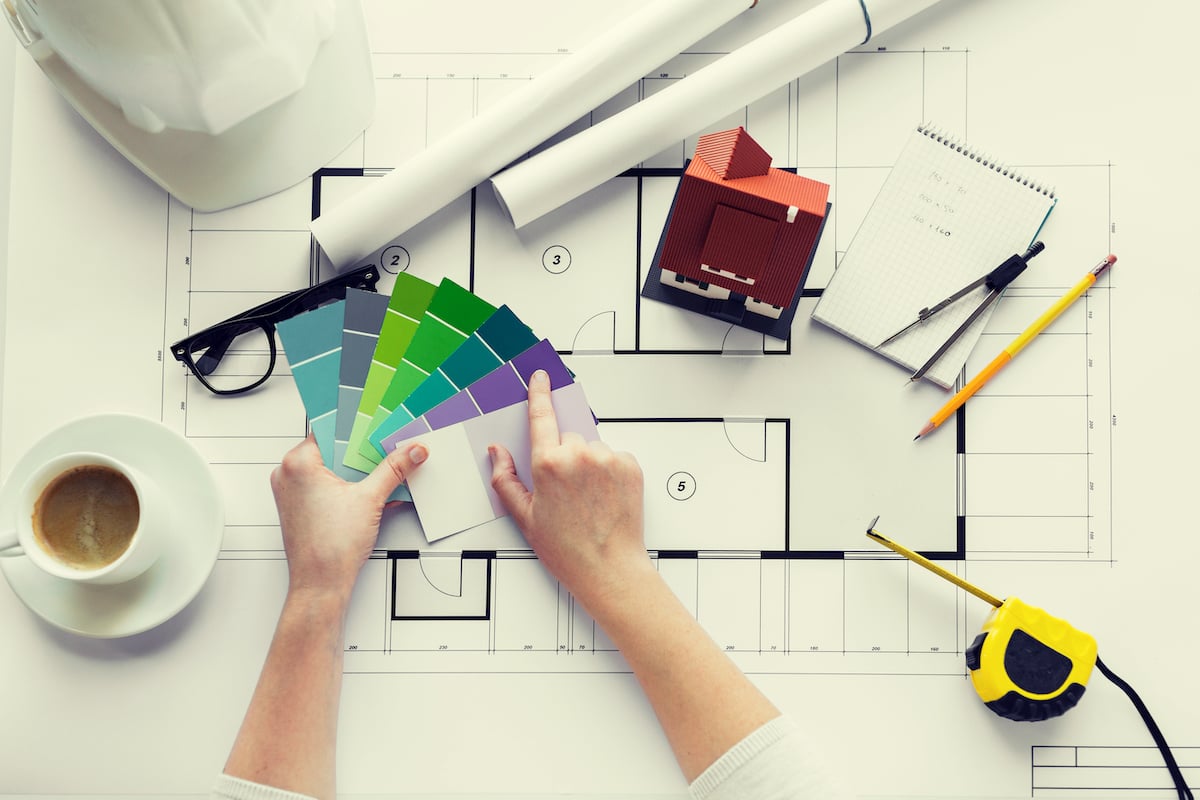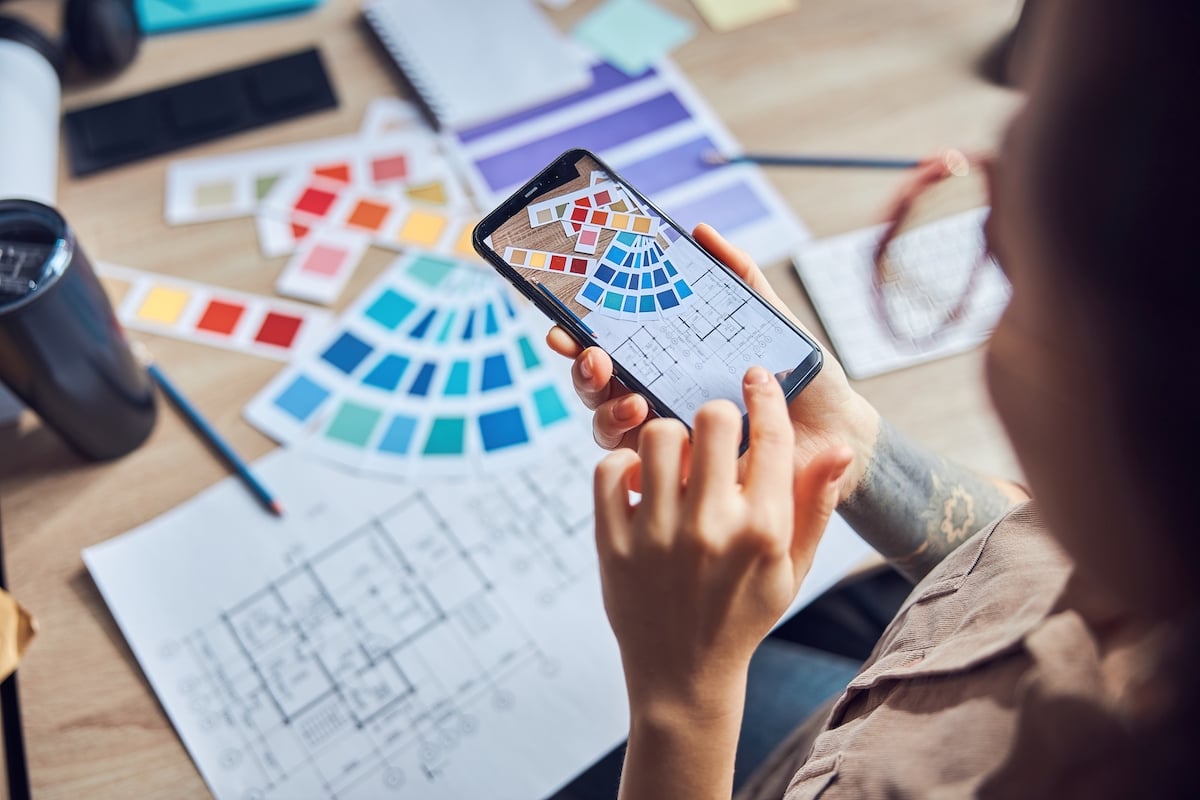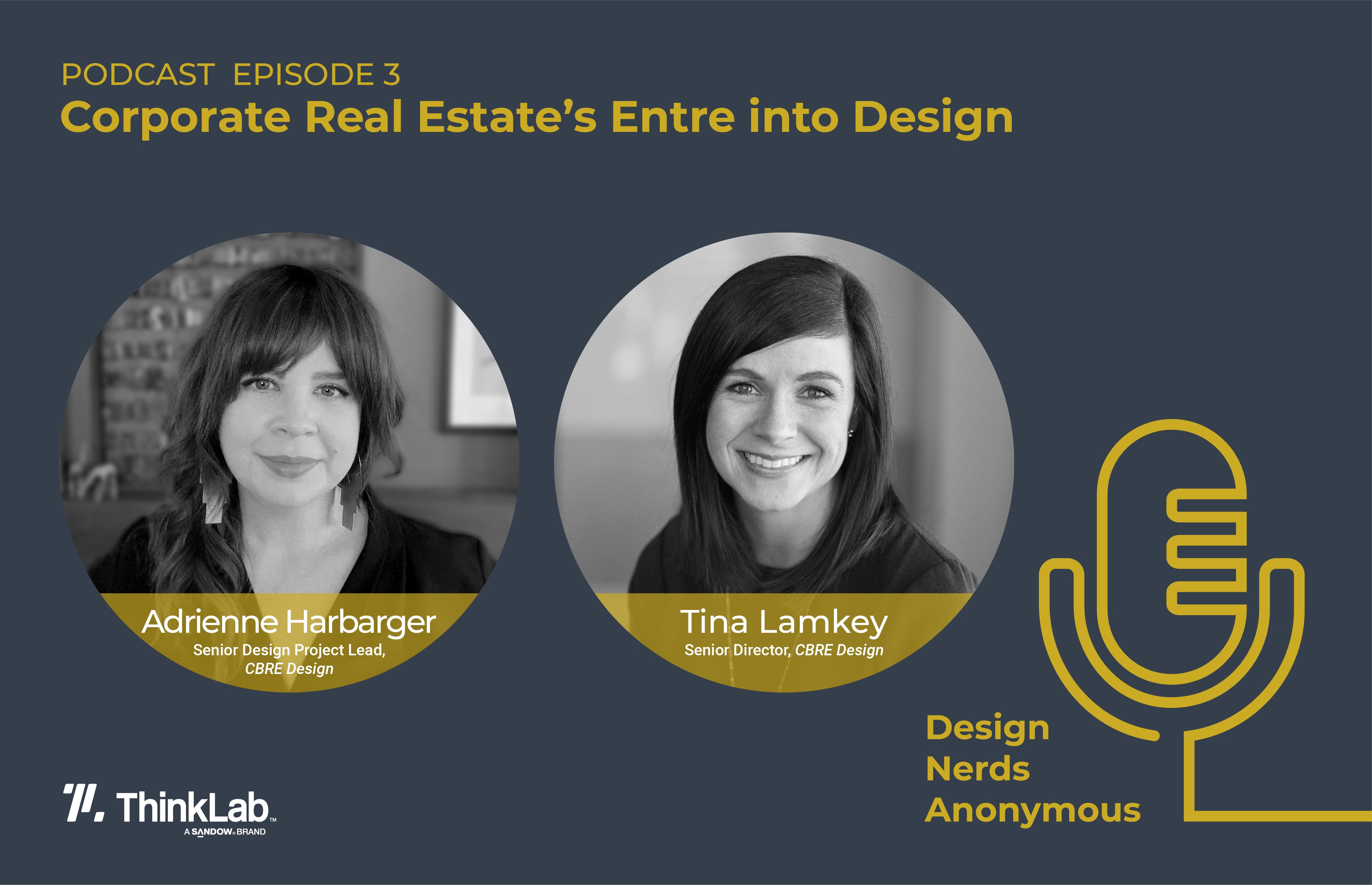
WeTransfer recently released its 2020 Ideas Report, which showcases the effects of COVID-19 on creativity. And at a time when the economy, employment rates, and overall morale were down, the report found a reason for hope — nearly half (45.3 percent) of the 35,000 creatives polled claimed that they experienced more creative ideas during the pandemic than before.
Which begs the question: How do we replicate the good that has come out of the pandemic and keep it going for the industry over the long term? ThinkLab sat down with business leaders within — and outside — the interiors industry to understand the shifts companies made to remain relevant in these changing times.
How do we replicate the positive lessons learned from the pandemic and keep them going for the industry once we return to the office? Image credit: Eric Laignel and is of the Novita Communications NYC HQ
Relying on creativity to keep business going
In many ways, creativity has been the main thing that has kept businesses open. Think of all the schools that transitioned to e-learning, the restaurants that shifted their indoor dining outdoors, or even the alcohol distilleries that switched operations from producing alcohol to making hand sanitizer. Creativity spurred success, and the most successful were those who found unique ways to remain relevant in our new, digital world.
As Holly Fraser, editor-in-chief at WeTransfer, observes, “What’s interesting about now is that creatives are having to find new ways to display their work. Artists don’t stop being artists because galleries are closed. For example, we were faced with closing our partnerships with the Summer Exhibition in London at the Royal Academy of Art and the creative agency Uncommon, because people couldn’t safely attend in person. This exhibit has run for 252 years and survived two world wars, so we had to figure out a way to make it work. We transferred the exhibit to an online platform, complete with a ‘lucky dip’ wallpaper, that allowed users of WeTransfer to click the wallpaper screen to see a new artwork from the exhibition each time, and a ‘The Show Must Go On’ commentary video with features from exhibition judges and curators. In the end, we had three times more people view the Summer Exhibition on WeTransfer than were able to go to the physical exhibition in London.”
Renewing a sense of emotional connection and social responsibility
ThinkLab research suggests that these challenging times have fostered a new level of connection across the industry. New partnerships have been forged that leverage design talent in new ways, connect disparate points of view to develop meaningful thought leadership, and extend beyond our traditional resources to hire social scientists, HR expertise, and more. This showcases the value in teamwork as the industry has come together for a common goal — not just to survive, which is a necessary endeavor during the pandemic, but also to address some of the pressing social issues that our slowdown has allowed us to focus on, collectively.
As Sam Aquillano, founder of Design Museum Everywhere, puts it, “I think COVID-19 has shown us massive collaboration is possible, but there are many barriers to overcome, namely racism, classism, ableism, and more. There are major problems affecting so many in our world, but not everyone — will we take the kind of collective action we’ve taken to combat COVID-19? I hope so.”
And interestingly, while many believe that remote work created a sense of emotional disconnect from colleagues, some feel that the fact that emotional well-being was being addressed in the workplace actually led to tighter-knit teams. Jessica Shaw, director of interior design at the Turett Collaborative, explains it this way: “Amongst my colleagues, one big difference that has manifested is in my team’s workflow. We are arguably and weirdly working closer and connecting on a deeper level than we had been in the studio together. When we shared the same work space, we saw each other and interacted, but on a smaller, less personal level than we do via video chat, where we have developed a deeper appreciation and camaraderie for one another as we all go through this difficult time together. Even when the workflow shifts again, and we are working in the same spaces, that admiration for our colleagues will remain the same.”
Fraser also explains how competitors have crossed the lines that separate them in an effort to work toward a shared, altruistic vision. She shares, “There is a renewed sense of togetherness. When the entire world is facing the same challenge, any petty industry rivalries really do go out the window. It’s about humanity now, and I think we’re seeing that reflected in the way many brands across our industry are working. At WeTransfer, we’ve been working with our fellow B Corp companies [businesses that meet the highest standards of verified social and environmental performance], to explore how we can create a positive impact on the planet as we move forward, and how we can empower and inform each other and, in turn, our customers. At the end of the day, it’s about recognizing and listening to numerous perspectives.”
Experiencing a fundamental mindset shift on work
According to the 2020 Ideas Report, 46.4 percent of people are reflecting more on what they want in life. For many, this means contemplating the sense of fulfillment achieved from work and finding ways to gain a better work-life balance.
Eric Matis, director of strategy at Cactus, shares, “I think there’s a refreshing honesty and freedom to this way of thinking and operating. It’s not about gritting your teeth and pushing through something that you hate; it’s about identifying what you have conviction for and letting that pull you forward.”
And Fraser connects the dots by sharing how this changed mindset has helped spur creativity and a new outlook on work. She shares, “I think before the pandemic hit, many of us were used to being busy — it was almost like a badge of honor. But while we were all running around, travelling, juggling multiple projects, and being ‘on’ 24/7, I think perhaps we didn't take the time to question how fulfilled we were because of it. When everything suddenly stops, you’re left with yourself and your thoughts. And I think this really led a lot of creatives in the industry to think about what really matters to them the most. The white noise falls away when you are forced to focus on what’s important. So many creatives that I have spoken to have said the same thing, that this moment has led to somewhat of a personal awakening. Moving forward, I think that we will be more protective of our time and will search out careers that allow for flexibility. It’s in these quieter moments that we allow ourselves the time to think too, and from conversations I’ve had, creatives are coming up with new ideas because of this. Work is important, but it’s not everything.”
While we could never predict what our future will look like after the pandemic is officially past us, these developments provide glimmers of hope that help us see the light at the end of the tunnel. And if these wise words from Minouche Shafik, director of the London School of Economics, are any sign of what’s to come, most will agree that this change has been for the good: “In the past, jobs were about muscles, now they’re about brains, but in the future, they’ll be about the heart.”
Amanda Schneider is President of ThinkLab, the research division of SANDOW. At ThinkLab, we combine SANDOW Media’s incredible reach to the architecture and design community through brands like Interior Design Media, Metropolis, Luxe, and Material Bank with proven market research techniques to uncover relevant trends and opportunities for the design industry. Join in to explore what’s next at thinklab.design/join-in.

